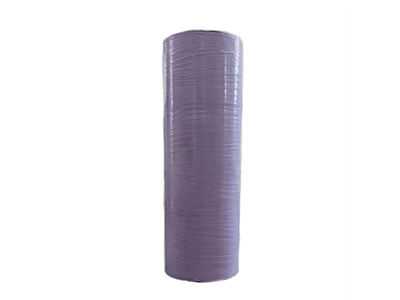Silage film is a key element of modern forage production that allows crop like corn and grass to be ensiled effectively through anaerobic fermentation process. This ensures the retention of nutrition and cut back in wastage, contributing to sustainable farming. At Shanghai Pudi Packaging Materials Co., Ltd we're keenly aware of the critical nature of choosing the appropriate silage film for agricultural use. In this post we take a closer look at what the differences are between virgin and recycled for silage film roll material, how these affect farming productivity and practices, and why they benefit saving our environment.
Understanding Virgin Silage Film Materials
Virgin silage film is produced using new and high quality PE resins that have not been used or processed before. This film is recognized for its uniform strength and durability characteristics that facilitate resistance to extreme weather and mechanical pressures experienced during both baling and storage. Use of virgin components offers excellent oxygen barrier properties for the farm environment silage is--fresh and free from spoilage. Farmers who want fa high quality film that is reliable and will last long years turn to virgin silage wrap because they have the peace of mind knowing there's far less risk of a tear or degradation over time. At Shanghai Pudi Packaging Materials Co., Ltd., we use the latest production technology to produce virgin silage films that meet the high requirements of modern farms and ensure excellent crop quality as well as maximizing yield.
Exploring Recycled Silage Film Materials
Recycled silage film is manufactured from post consumer, or post-industrial plastic waste which helps in moving towards a circular economy and minimizing environmental effects.. Although this may help sustainability objectives, it can present variations in material thickness and strength compared with virgin materials. Agriculturally, re-cycled films can still provide enough protection for silage when applied in lighter-duty situations or during shorter storage. It's worth mentioning though that the recycled materials may carry a slightly higher chance of blemishes, having an impact on overall performance. Shanghai Pudi Packaging Materials Co., Ltd devotes itself to the construction of low-carbon and environment-friendly industrial system, therefore taking into full consideration both environmental protection as well as usage requirement on recycled silage films, makes customized production being possible according to the different users.
Focus on Agricultural Application and Material Choice
The answer depends on your farm and growing situation (crop grown, length of storage, local weather). New films (Virgin) are recommended for high value crops or long storage due to their strength, longevity and resistance to ultra violet light. Re-used films, however, will present an economic and ecological solution for seasonal or low damage risk applications. The trick will be to use the right feedstock for a given agricultural goal, such as increasing feed quality and reducing waste. At Shanghai Pudi Packaging Materials Co., Ltd., we offer advice and silage film products to assist farmers in reaching their goals by creating practical as well as green solutions for each product.
Conclusion
In conclusion, the decision between virgin and recycled silage film products should be based on a farm’s own specific needs in terms of performance, price and environmental impacts. Both have their place in agriculture, and a better grasp of the nuances can help drive smarter decision making. Shanghai Pudi Packaging Materials Co., Ltd is committed to providing the agriculture with quality silage films that improve storage and encourage environmentally sustainable solutions. We keep farms growing by paying special attention to quality and innovation.

